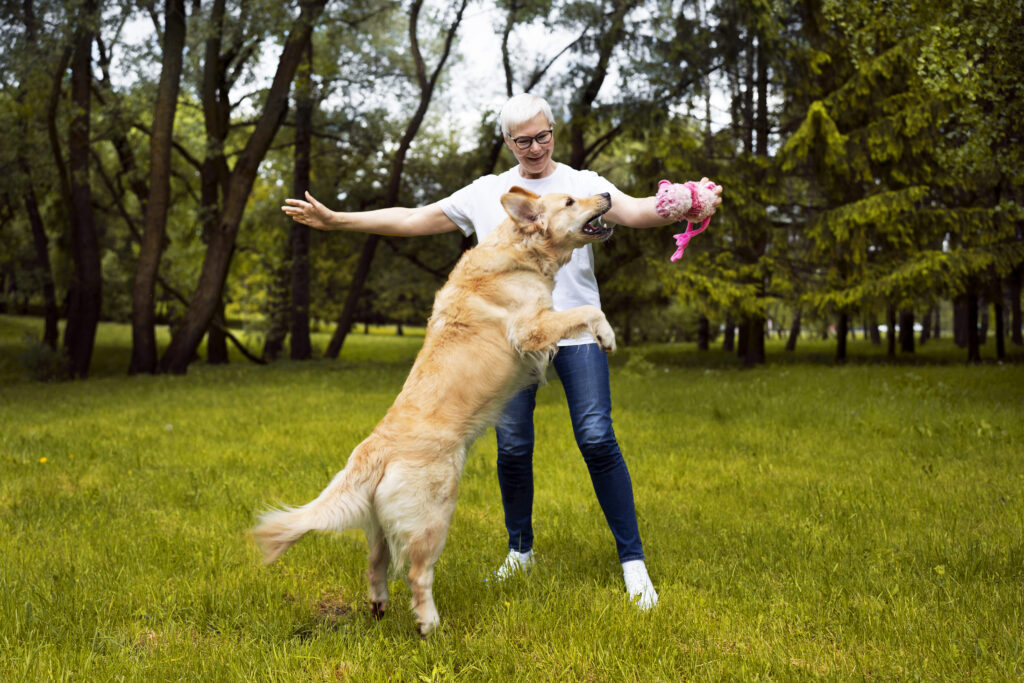As a pet owner, your responsibility goes far beyond providing food, water, and shelter. Ensuring your pet’s happiness and health requires ongoing effort and attention. Pets are not just animals; they are companions that become an integral part of the family. Their well-being is essential for maintaining that strong bond between pet and owner. Whether you have a playful puppy, a curious kitten, or a wise senior pet, there are several key factors that contribute to keeping your pet happy and healthy throughout their life.
In this article, we will explore the essential aspects of pet care, including diet, exercise, grooming, mental stimulation, and regular vet visits, all of which contribute to the happiness and health of your furry friend.
1. Providing a Balanced and Nutritious Diet
A nutritious and balanced diet is the foundation of good health for any pet. Just as humans need a proper diet to stay healthy, your pet’s health is influenced by the food they eat. However, not all pet foods are created equal, and understanding what to feed your pet can be confusing at times.
- Choose High-Quality Pet Food: Look for pet food brands that are reputable and contain high-quality ingredients. Check the label to ensure the food is formulated for your pet’s specific age, size, and breed. For example, puppies require different nutrition than adult dogs, and senior pets may need food tailored to their aging needs.
- Consult Your Vet: Your veterinarian can offer expert guidance on the best diet for your pet. Whether your pet has food allergies, sensitivities, or health issues like obesity, your vet can help you choose the appropriate food and feeding schedule.
- Avoid Human Food: While it may be tempting to share your meals with your pet, many human foods can be toxic or harmful to animals. Foods such as chocolate, grapes, raisins, onions, and certain spices can cause severe health problems in pets. Always stick to pet-friendly treats and foods.
- Fresh Water: Always provide your pet with access to fresh, clean water. Proper hydration is essential for digestion, joint health, and overall well-being.
2. Exercise and Physical Activity
Exercise is vital to your pet’s physical and mental health. Pets, especially dogs, require daily physical activity to keep them fit, prevent obesity, and release pent-up energy. Cats also benefit from regular playtime to keep them agile and mentally stimulated.
- Dog Exercise: Dogs need daily walks, play sessions, and mental challenges to stay healthy and happy. Depending on your dog’s breed and energy levels, some dogs require more intense exercise than others. Active breeds like Border Collies or Labrador Retrievers may require up to two hours of exercise a day, while smaller or more sedentary dogs may need less.
- Interactive Play for Cats: Cats may not need as much physical exercise as dogs, but they still require daily mental stimulation and physical activity. Engage your cat with interactive toys like feather wands, laser pointers, or puzzle feeders. This not only helps keep them physically fit but also combats boredom, which can lead to destructive behaviors.
- Age-Appropriate Exercise: Puppies, adult pets, and senior pets all have different exercise needs. While a young puppy might have boundless energy, older pets may need less intense exercise to avoid joint strain or fatigue. It’s important to tailor your pet’s activity level based on their age, size, and health condition.
- Hydration During Exercise: If your pet enjoys physical activities like running or hiking, make sure they stay hydrated. Carry fresh water with you and offer it to your pet frequently, especially during warm weather.
3. Regular Grooming and Hygiene
Grooming is not just about making your pet look good; it’s also about maintaining their health. Regular grooming helps prevent matting, reduces shedding, and keeps your pet’s skin and coat in top condition.
- Brushing: Regular brushing helps remove dirt, loose fur, and tangles. It also promotes healthy circulation and distributes natural oils in your pet’s coat, making it shinier and softer. Depending on your pet’s breed and coat type, you may need to brush your pet daily or weekly.
- Bathing: Over-bathing your pet can strip their skin of natural oils, but regular baths are necessary to remove dirt, dander, and odors. Use pet-safe shampoos and conditioners to avoid skin irritation. Some pets, like certain breeds of dogs, may require specialized grooming, such as haircuts or trims, to maintain their coat health.
- Nail Clipping: Long nails can cause discomfort or even injury to your pet, so regular nail trimming is important. If you’re unsure how to safely trim your pet’s nails, ask your veterinarian or a professional groomer for guidance.
- Ear and Eye Care: Regularly check your pet’s ears for wax buildup or signs of infection, especially for pets with long or floppy ears. Gently clean their ears with a pet-safe solution if necessary. Additionally, keep an eye on your pet’s eyes for any discharge, redness, or signs of irritation.
4. Mental Stimulation and Enrichment
Mental stimulation is just as important as physical exercise. Pets, especially dogs and cats, need to engage their minds regularly to stay mentally sharp and avoid boredom, which can lead to anxiety or destructive behaviors.
- Interactive Toys and Puzzles: Provide your pet with toys that challenge their problem-solving skills. Puzzle feeders, treat-dispensing toys, and interactive games keep your pet entertained and mentally engaged.
- Training and Socialization: Training your pet not only helps them learn obedience but also provides mental stimulation. Basic commands such as sit, stay, and come can be fun and rewarding for pets. Additionally, socializing your pet with other animals or people helps build confidence and reduce anxiety.
- Changing Up the Routine: If your pet seems bored with their daily routine, try introducing new activities. For example, take your dog to a new park, or introduce your cat to new toys. By keeping things fresh, you provide continuous enrichment that keeps your pet happy and engaged.
- Environmental Enrichment: Creating a pet-friendly environment in your home can enhance your pet’s quality of life. For cats, this might mean adding climbing structures or scratching posts. For dogs, it could involve providing different textures and obstacles to navigate during walks.
5. Regular Vet Visits and Health Checks
As previously mentioned, regular vet visits are essential to keeping your pet healthy. Your vet will perform routine check-ups, including vaccinations, dental exams, and parasite control. These visits are crucial for detecting potential health issues early and ensuring your pet remains in optimal condition.
- Vaccinations: Regular vaccinations are necessary to protect your pet from harmful diseases like rabies, distemper, and feline leukemia. Your vet will also administer booster shots as necessary.
- Parasite Prevention: Fleas, ticks, and worms can cause a variety of health problems for pets. Make sure your pet is on a regular parasite prevention plan, including flea/tick treatments and deworming medications as recommended by your vet.
- Senior Pet Care: As your pet ages, they may require more frequent vet visits to monitor their health. Senior pets are prone to age-related conditions like arthritis, diabetes, and kidney disease. Regular check-ups ensure that these issues are identified early and managed appropriately.
6. Providing a Safe and Comfortable Living Environment
Your pet’s environment plays a big role in their overall well-being. Make sure your pet’s living space is clean, comfortable, and safe.
- Comfortable Sleeping Area: Provide your pet with a cozy and quiet space to rest. For dogs, this might mean a soft bed or blanket in a calm area of the house. Cats may appreciate a high perch or quiet corner where they can retreat when they need rest.
- Safety at Home: Make sure your home is pet-proofed to prevent accidents. Remove any hazards, such as toxic plants, sharp objects, or choking hazards. Ensure your pet has access to fresh water and food at all times, and monitor their environment for any potential dangers.
- Outdoor Safety: If your pet spends time outdoors, ensure they have a safe, secure area to play in. Fencing should be high and free from gaps to prevent your pet from escaping. If your pet is prone to wandering, consider using a leash or harness when outdoors.
Conclusion: A Holistic Approach to Pet Care
Ensuring your pet’s happiness and health is a multifaceted approach that involves proper nutrition, regular exercise, grooming, mental stimulation, and ongoing vet care. By providing a balanced diet, engaging activities, and a safe living environment, you are giving your pet the best chance for a long, healthy, and fulfilling life.
Every pet is unique, and what works for one animal may not work for another. It’s essential to observe your pet’s individual needs and tailor your care accordingly. As a pet owner, you are your pet’s best advocate, and by prioritizing their health and happiness, you are strengthening the bond you share.
Whether you’re a first-time pet owner or an experienced one, remember that a little extra effort can go a long way in ensuring your pet leads a fulfilling and joyful life. With love, attention, and the right care, your pet will thrive and bring joy to your home for years to come.






